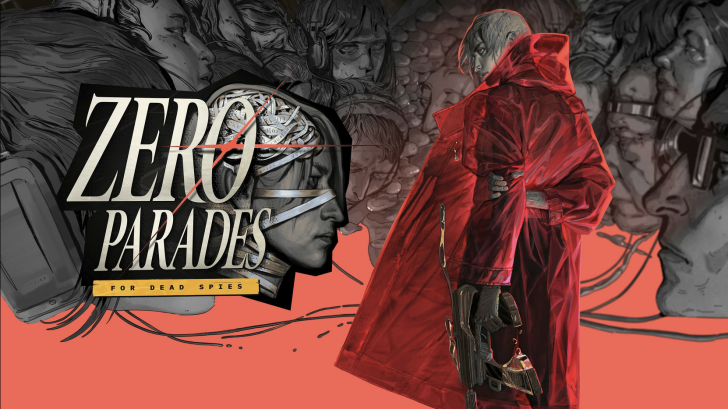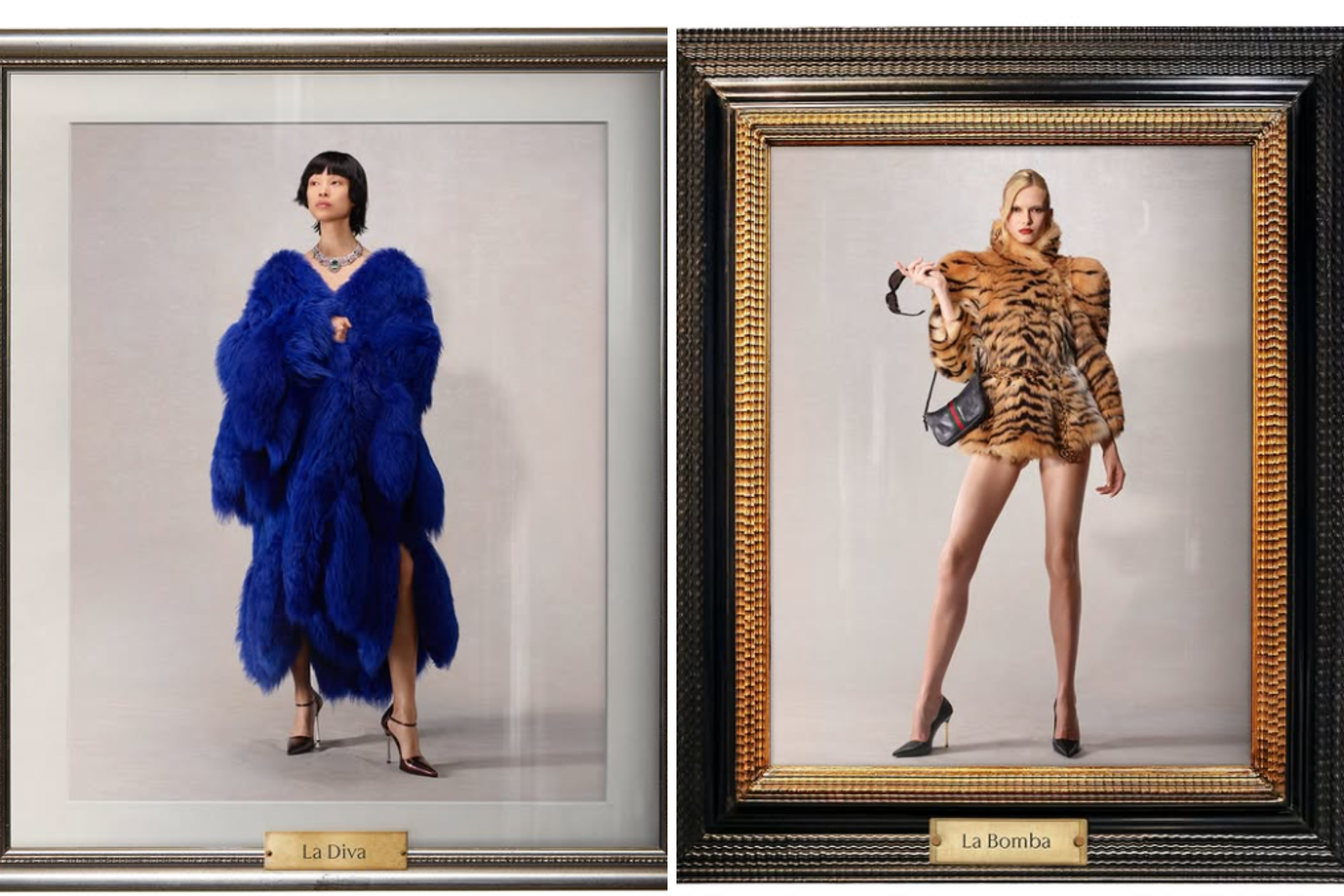
If you had told me in 2020 that ZA/UM was making a new game called Zero Parades, I’d be excited and very interested to see what that new game was. At that point in time, we’d be a year from the studio’s critically acclaimed debut hit, Disco Elysium. For all intents and purposes, it seemed like there was a new, groundbreaking studio on the scene, ready to push narrative storytelling in videogames and narrative games to the next level.
Today, I’m much less excited but in other ways even more interested than before. It’s not the title of the game, of course, that has any weight on my expectations, but the myriad of new studios that have spawned in the last six years since Disco Elysium’s release, and the dire allegations that have been flung between ZA/UM management and key creative leads behind Disco Elysium.
It’s well documented that key founding members of the art collective and cultural movement that grew into the game studio we know it as today are no longer there. None of the core writing team that worked on the 2019 release of Disco Elysium, some of whom created the initial tabletop role-playing game world of Elysium that would grow into the videogame, are still at ZA/UM, and their departures have not been clean.
This has made fans all too aware that Zero Parades is not a game made entirely by the people who brought them Disco Elysium, despite what the first teaser for Zero Parades (back when we knew it as C4) says off the top.
Of course, some of the team is still there, even after the layoffs, like Jim Ashilevi, a VO director and writer who has been with ZA/UM since its founding. I was invited, alongside other members of the press, to hear from Ashilevi and Jess Crawford, a producer at ZA/UM who joined the team in May 2022, to learn more about Zero Parades, what the game is about, and its main protagonist, Hershel Wilk. I even got to see some early-stage gameplay to better display the core pillars of Zero Parades, like a new game mechanic called Dramatic Encounters.
March 2025 was when we first learned about Zero Parades via its codename, C4. This past August, during Gamescom 2025, was when we got our first look at the trailer above and the Zero Parades name. A new game and IP not set in the same world as Disco Elysium, with new characters, but, as is very easy to spot, not exactly an entirely new look.
Obviously, it’s not Aleksander Rostov behind the wheel of the game’s art, but it’s easy to spot Zero Parades as a game that has Disco Elysium DNA, at least at a glance. It becomes even easier to spot that genetic history when you look closer, particularly when viewing any snippets of gameplay and gameplay screenshots. And as previously mentioned, it shares plenty of Disco DNA thanks to the team members at ZA/UM who remain at the studio and previously worked on Disco Elysium.
The foundation of Zero Parades
Zero Parades is an espionage CRPG that’s heavily inspired by classical espionage fiction, with Ashilevi pointing directly to novels like Tinker Tailor Soldier Spy and Smiley’s People by John le Carré and Mick Herron’s Slough House series, while the sci-fi side of the game comes from authors like Blade Runner writer Phillip K. Dick, The Dispossessed writer Ursula K. Leguin, and Stanisław Lem.
Beyond its literary influences, Ashilevi points to film influences that helped shape Zero Parades, namely Korean cinema, with Ashilevi specifically calling out Park Chan-wook and his films as a source of inspiration. It’s all together an interesting mix, though interesting influences do not necessarily make for an interesting final product.
Moving on to the game’s protagonist, rather than being a drunken detective trying to solve a mystery, Hershel Wilk is a secret agent working under one of the three global powers. She’s a fatally flawed lead who, despite her issues, is described as “brilliant, magnetic, and relentless.” Crawford also calls her “the anti-James Bond,” because Hershel Wilk is not a slick spy capable of charming or punching her way out of bad situations.
She doesn’t have fancy gadgets and gizmos at her disposal, and being a spy can be much more mundane and manipulative than movies make it seem. She has to figure things out as she goes along while wrestling with pretending to be someone she’s not, which ties in to one of Zero Parade’s core themes of ’embracing failure.’
As previously mentioned, Hershel is a spy, though in the game’s world her official title is ‘Operant’ and her codename is ‘Cascade.’ She works for Superbloc, a union of communist nations and one of the three global powers, under its espionage division called ‘Opera,’ hence the ‘Operant’ job title. The two other global powers are a group of techno-fascists and a shady international bank, with all three groups caught in a power struggle in the sovereign island city-state, Portofiro.
Though it remains a democratic nation separate from Superbloc and the other parties, Portofiro has felt their sting so often that the city’s best days are behind it, and there’s a dread hanging over the island of something terrible that hasn’t happened yet, but everyone seems to feel coming. It’s where, Ashilevi explains, the feeling that Portofiro is at “the end of history” comes from, which was a topical notion in the 1990s, around people feeling like all of history’s biggest events had happened, and some imminent doom or event is incoming.
It all powers the setting that Hershel walks into when returning to Portofiro, who is also in the dark about what’s coming next as much as everyone else on the island. Ashilevi even comments that Hershel doesn’t know entirely why she’s being sent to Portofiro in the first place.
The personal struggle at the core of the political mystery
To be clear, she knows part of why she’s being sent there. Five years before the events of Zero Parades kick off, Hershel and the team she assembled while stationed there got into a big mess that entirely blew their cover. In order to get out, Hershel betrayed her squad, leaving them behind to ensure her own safety. The Opera had her working as a desk agent for the next five years as a result of her failure, though now that something is heating up in Portofiro again, as the Operant most familiar with the island, she’s being sent back.
Besides the top-level political struggle Hershel is being sent to try to deal with, her relationship with her old crew is where the personal struggle of the game’s story comes in. Whatever this mission is going to entail, she won’t be able to do it alone, and she’ll need to recruit the help of her old crew. But how can she hope to get their help when the last time they saw each other, she betrayed them?
“It’s very much a story about failure and crippling regret,” Ashilevi said during the presentation, “and what it’s like to lose the very people that you cared about the most, and what it’s like to carry the burden of basically being the person who f***** them over, and what does it mean to try and rebuild bridges that you can’t really rebuild.”
“What do you do if you have to find a way back to those people, but you can’t, there’s literally no way. We’ve been deeply interested in what it does to the human psyche, how it leaves scars on someone’s heart and soul, and what goes on inside the mind of a person who has been put in this impossible situation where, on the one hand, they have this enormous responsibility to be a small player in an immensely complicated and important power struggle at the highest political and economic level. But then also, how does that person simultaneously grapple with deep internal grief, and how does that manifest in her landscape and in her psyche.”
“It’s not only a game where you solve a complicated mystery that is external to you, it’s also a game where you take a deeper dive into your own psyche.” – Jim Ashilevi
Skills, fits, dice rolls, Conditioning, and Dramatic Encounters
One of the ways ZA/UM is trying to express all that in gameplay is through a mechanic called Conditioning, which is part of how the player will build their own version of Hershel throughout Zero Parades’ story. Conditioning is about the ‘thoughts’ Hershel will gain, and how you, as the player, choose to condition Hershel to those thoughts. As you gain different ‘thoughts’ in the game, you can either reinforce them, giving you one set of modifiers, or punish them, giving you other modifiers.
But whether you choose to reinforce or punish a thought, you can still choose to act against your conditioning. A hypothetical Crawford discusses is: say Hershel has been conditioned not to smoke, for whatever reason. It’s a reinforced thought that she won’t ever take up smoking. But while at a party where she’s trying to gain information, standing outside with the other smokers and partaking could lead to new information gained that would be missed by staying inside. Going outside and smoking, though, would negatively impact her and her modifiers, potentially impacting what could come after gaining the information.
“That’s the choice throughout gameplay, it’s who you want to be, versus who you really are,” said Crawford.
You’ll also map out your version of Hershel through her skills, including espionage skills like Coordination, Primal Reflex, Sensors, Shadowplay and Doppelgang. Her less espionage-focused skills include Poetics, Technoflex, Records, Grey Matter, Entanglement, Nerve, Cold Read, Statehood, Blueprints, and Personalism.
Just because you’re skilled for a situation doesn’t mean it’ll always go your way, though, as another aspect of Zero Parades gameplay is Pressures and Exertion. These aspects are related more to Hershel’s physical state as well as her mental state, charting things like her fatigue and anxiety. Successfully win a dice roll to perform something physically taxing, and Hershel will be more fatigued afterwards. Have a drink of coffee, and her fatigue will drop, but she’ll grow more anxious.
Dramatic Encounters, which I mentioned at the top, tie into everything else already discussed, but are also ZA/UM’s way of adding an element of action to the gameplay in what is otherwise a game where you do lots and lots of reading.
The presentation showed a clip of early gameplay footage (so early that there was a test dummy model in place of Hershel) in which the player must try to get across the market without being seen. You’ll be stopped at inflection points, like needing to choose between three paths, and whatever happens based on your skills, modifiers, dice roll, and your choice, you’ll need to adapt to it. You don’t get to try again; you have to embrace the failure or success of whatever comes and keep moving forward.
Hershel’s outfits also play a role in gameplay, as you’ll be given access to different areas or dialogue options based on what you’re wearing, though it’s not necessarily something that you have to always follow. “You can choose whether you want to make your life easier or look cool,” Crawford said.
The start of a new ZA/UM chapter at the end of history
When the nearly 50-minute-long presentation concluded, and as I wrap up this preview, I feel, as I said at the start, more interested in Zero Parades than excited about it. Unable to be overly excited due to everything that’s happened within and outside the studio in the past six years, and interested to see what the group of artists still there make as they try to come out the other side of it all.
As the first game from ZA/UM following the departure of the core creative team behind Disco Elysium, and a game that will likely be released while the issues between the members of that team and ZA/UM are still being worked out in the courts, Zero Parades is burdened by a pressure it doesn’t need.
It seemingly has to prove to players that ZA/UM is more than just the original 2019 writing team of Robert Kurvitz, Helen Hindpere, Argo Tuulik, Martin Luiga, Olga Moskvina, Cash Decuir, and Märten Rattasepp. That the art collective at the core of the studio’s founding is still in there, and that it hasn’t been spoiled by business-only minded people in the way that some of those departed creatives have alleged.
Nothing I saw in the presentation looked bad. Based on what I saw, Zero Parades has a strong and rich foundation to tell a deep and engaging story. It could be one of the best narrative games to hit the industry since Disco Elysium. But previews can only reveal so much, and especially with narrative games like this, you can’t get a sense of what the final product will be like without actually spending a good amount of time playing it.
I know game development is almost never a solo act, that there’s practically no such thing as an auter in this industry because you can’t do it alone. Every game comes together thanks to the work of an entire team of people, from writers to artists, animators, programmers and so on.
I know it’s true that ZA/UM was always more than just those writers, but if Zero Parades fails to deliver in the way that Disco Elysium did, then the idea that the studio has lost its touch without them is the kind of convenient claim the internet will run with, and ZA/UM may never be able to shake that identity. At least what I got to see of the game and what I heard about it from Crawford and Ashilevi gave me the hope that ZA/UM can still be the groundbreaking studio we all saw in 2019.



